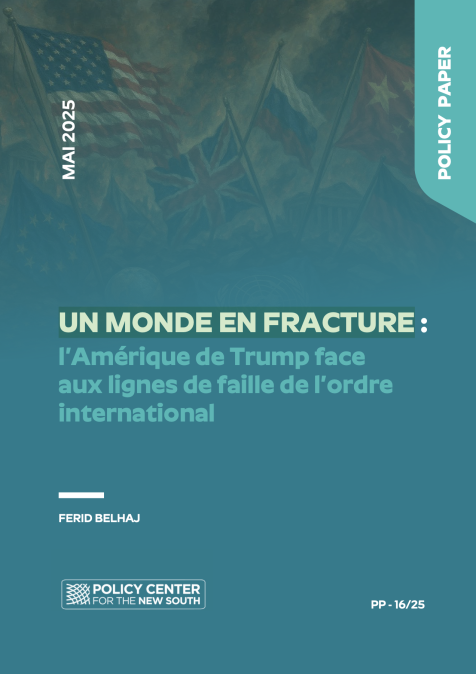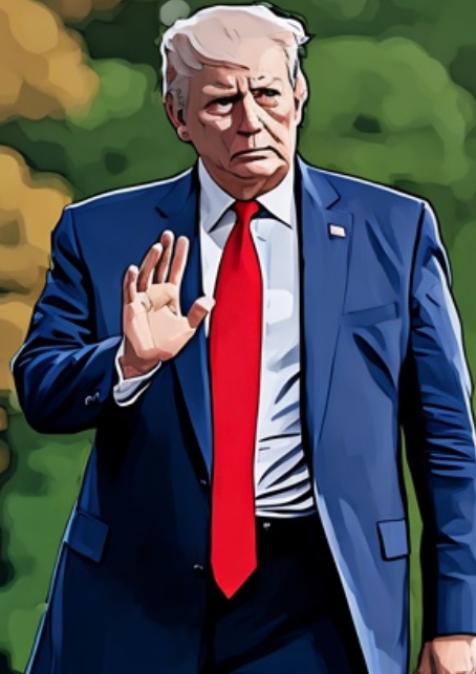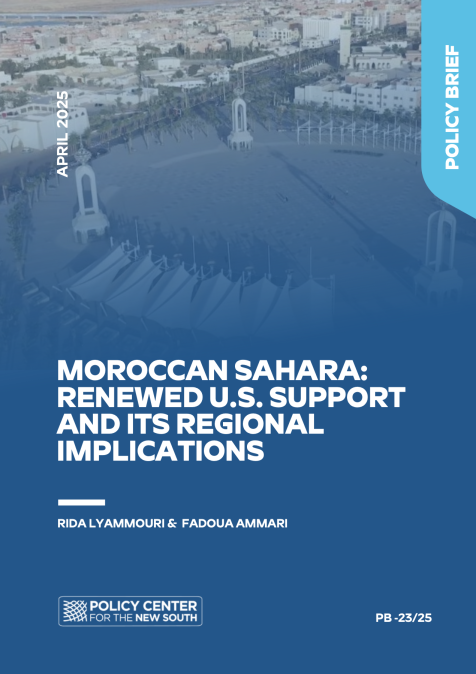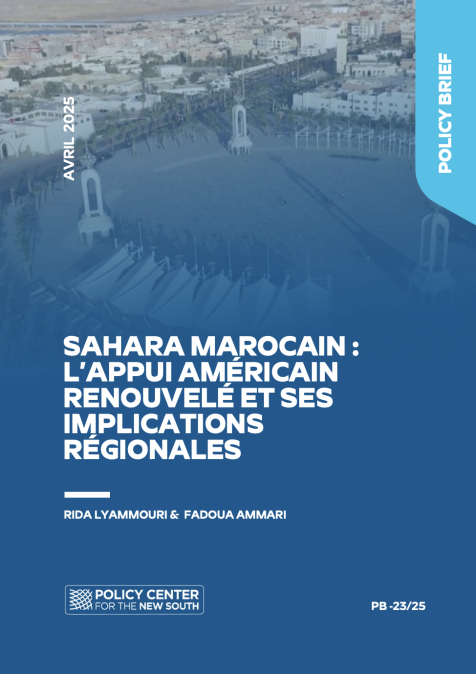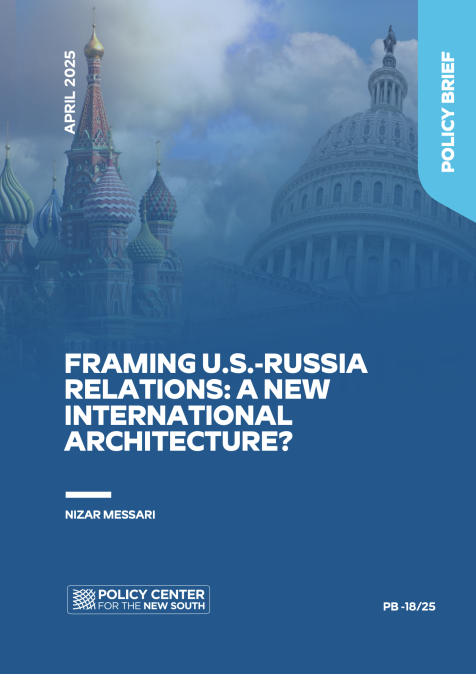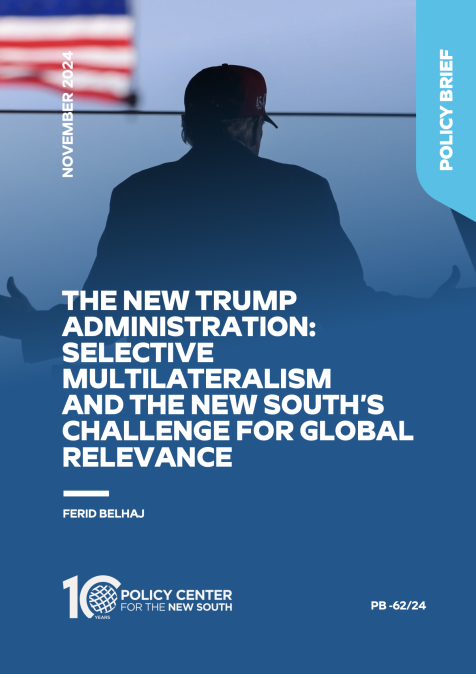Publications /
Opinion
The New York Times reported this morning that after the shot down of an U.S. drone by Iranian forces, President Trump ordered military retaliation, but called it off in the early phase. Below is a facts' review through the international press perspectives.
“You are pushing everyone towards a confrontation”
Unusually, the satellite images were not presented to the media. Possibly, the photos were taken from a submarine, or there was fear that the enemy could figure out who and how detected their armament. The proof for an imminent attack on the armed forces of the United States: small boats, so called dhows, armed with a missile or two, unusual activities in several ports of Iran. Paramilitary units arming mini destroyers, some powered by outboard engines. Just in time, the United Arab Emirates, a declared enemy of Tehran, reported that four giant oil tankers, harboring near the port of Fujairah, had been sabotaged, south of the Strait of Hormuz, the strategic shipping lane for about 30 percent of the world's oil supply. The culprit were not seen, forensic prove not provided, but its shadow has been traced.
John Bolton, Trump’s hawkish national security adviser, who still believes that the invasion of Iraq, trying to destroy imaginary weapons of mass destructions, was justified, threatened the rulers in Tehran speaking to a “United against nuclear Iran”-group in New York, “if you cross us, our allies, or our partners, if you harm our citizens, if you continue to lie, cheat and deceive yes, there will indeed be hell to pay.”The Trump administration not only moved an American carrier strike group, the “Abraham Lincoln”, B 52 bombers and a Patriot missile defense battery into the Persian Gulf, but the Pentagon updated action plans, ready to send 120 000 troops to the Middle East if hostilities with Iran escalated—as many GIs as initially were transported in 2003 to Iraq to eliminate Saddam Hussein and his fictional nukes.
“A crisis entirely manufactured by the Trump administration”
Wendy R. Sherman, a former undersecretary of state for political affairs, and head negotiator of the Iran Nuclear Deal, wrote an “opinion” for the “ New York Times” (may 17th, 2019) in which the author stated that “either the Trump administration is trying to goad Iran into war, or a war could come by accident because of the administrations reckless policies—the prospect of the current tensions in the Middle East escalating into a serious conflict is now dangerously high. ” This is a crisis that has entirely been manufactured by the Trump administration”, maintains Vali R. Nasr, the dean of the Johns Hopkins School of Advanced International Studies in Washington ,DC. ” None of the other signatories to the deal were persuaded by the case the US was making. And that is because this administration's policy on Iran, at a fundamental level, does not have credibility.” (Skeptical U.S. Allies Resist Trump’s New Claims of Threats From Iran NYTimes May 14, 2019)
In the early morning hours of last Thursday though, Iran, it seems, documented a provocation to the world, which Mike Pompeo, the State Department boss, declared as a “clear threat. ” Two oil tankers were on fire in the Gulf of Oman, 25 nautical miles off Iran’ s southeastern coastal city of Jask ,one Japanese, the other Norwegian owned. Grainy, black and white footage was released by the US” Central Command” and the Pentagon to the global news networks, showing an Iranian patrol boat, supposedly manned by members of the Islamic Revolutionary Guard Corps, trying to remove an unidentified object, possibly an unexploded magnetic mine, from the hull of the Japanese tanker. A column of black smoke was towering like an exclamation mark above the Norwegian owned “Front Altair”, whose crew abandoned ship.
The Iranians denied any attack, yet CNN reported a day after the incident, that the Islamic revolutionaries, which apparently tried to remove embarrassing evidence from the hull, had fired a missile at an approaching American drone, and later intercepted tugboats, trying to pull the damaged tankers towards safety. After firefighters had controlled the blaze, the debate raged about the arms used to attack the boats- mines or torpedoes, and who pulled the trigger to escalate tension in the region. Washington had no doubt; Tehran claimed its innocence. Arab League Chief Ahmed Aboul Gheit urged Iran “to be careful, reverse course, because you are pushing everybody towards a confrontation where no one will be safe”, a confrontations a long time in making ,at least since the election of Donald Trump in 2016.
“Mr. Trump dialed up the heat”
By withdrawing from the 2015 nuclear deal, aimed to curb Iran's nuclear program, the Trump government has sought to cripple the Iranian regime, weaken the power of its ruling clerics and force the regime back to the negotiation table-to accept harsher conditions and restrictions, an Iranian submission Trump promised his voters. Washington re-imposed punishing sanctions on Tehran and demanded that allies chose between Iranian oil and doing business on the American market. Mr. Trump, reported the “New York Times” (May 8, 2019) “dialed up the heat” by lifting waivers that had allowed eight countries (including China, Japan, India, South Korea, Turkey) to continue importing limited quantities of Iranian oil.
The goal, pressed more forcefully by John Bolton, seems clear— “to strangle Iran's oil dependent economy and lay the ground for regime change.” Iran had earned annually about 50 billion from oil sales accounting for as much as 40 percent of government revenues. The decision to stop five of Iran's biggest customers from buying its oil was “an audacious strike at Tehran’s life line” (“New York Times”)—one billion barrels of oil exports daily, fully half of which go to China.
Mr. Trump’s uncompromising dealing methods have pushed Iran into recession and driven its inflation rate to nearly 40 percent .Its economy is forecast to shrink this year by six percent. In short, the American economic chokehold is painful, confirming the feeling of the regime that it is under attack. ” Their response is not to escalate to a conflict, but certainly not to back down”, said Ariane Tabatabai, a political scientist at the Rand Corporation and an Iran researcher at Columbia University. ” What they want to do is continue this current trend of doing everything they can to poke the US in the eyes, without getting to the threshold of an all-out war. Targeting a crucial oil shipping route would serve as a pointed reminder that Iran is capable of striking American allies and disrupting the world ‘s economy, even if it cannot fight the US military head to head.”The attacks on the tankers in and around the Strait of Hormuz undoubtedly is such poking into the eyes, but just imagine a Revolutionary guard commander mistaking an American fighter jet for a drone and orders an attack ending with the death of the US crew. How would Donald Trump react, ever so willing to order American forces back from foreign battlefields?
The president will be strangled financially
Economic and financial sanctions have become a key tool of US Foreign policy, a powerful weapon, tried to pressure an assumed enemy into submission. In march John Bolton threatened Venezuela’s President Nicolas Maduro that unless he relinquishes power immediately,” he and his cronies will be strangled financially. ” Again, the US is attempting to stop all oil exports by the Caracas regime, which is supported by Moscow and China, two powers which warned Washington not to intervene militarily. Life is miserable in Caracas and the provinces, the people survive, not more. They are poor, but sanctions, do create more misery, more poverty. Early June Washington added sanctions on Cuba, a nation which during more than half a century since Fidel Castro's revolution has been under US sanctions (unable to request loans or other economic assistance from the world bank).
Barack Obama, and the Rolling Stones, celebrated, just three years ago, a normalization of Cuban/American relations in Havana, more tourism, internet connections, tolerance of private enterprise, freedom of religion, diplomatic relations—hope. 1000 000 Cubans danced to “ Jumpin Jack Flash” and “Paint is black”, inhaling a twinkle of freedom-- no more. The Trump administration decided from one day to the other on more sanctions, to cancel any normalization, not even talented Cuban baseball players are allowed to be signed by US teams, American cruise ships, almost a million Cuba reservations for the year, were cancelled. Treasury Secretary Steven Mnuchin said in a statement that the restrictions are a result of Cuba continuing ”to play a destabilizing role in the Western Hemisphere ,providing a communist foothold in the region and propping up US adversaries in places like Venezuela and Nicaragua by fermenting instability, undermining the rule of law and suppressing democratic process.”
“We have to prepare for the worst”
For the past few months Cubans have faced shortages of food, sporadic power cuts and fuel shortages- “we have to prepare for the worst, ”Cuba's communist leader, Raul Castro, brother of Fidel, warned and the government announced it would ration several staples, as rice, beans ,chicken and eggs, toothpaste and soap. Susan E. Rice, national security adviser (from 2013 to 2017), in the Obama White House, contributed a think a piece to the” New York Times (“The real Trump foreign policy-stoking the GOP”,may 5 ,2019), argued that “instead of causing the collapse of the Cuban government or the abandonment of its ally Venezuela, Mr. Trump's approach will again bolster hard-liners in Havana, entrench policies we oppose, drive Cuba closer to Russia and China, further isolate and impoverish the Cuban people and punish our European and Canadian allies, whose companies will now be sued.”
Mr. Mnuchin has taken great pride in bolstering treasury’s sanctions capacity and often says that he spends half of his time working on sanction matters; less than a month after a summit meeting between President Trump and Kim Jong- un collapsed in Hanoi without a deal, Washington imposed new sanctions on two Chinese shipping companies that helped North Korea evade international sanctions. One used “deceptive practices” that allowed North Korean officials in Europe to purchase goods for Mr. Kim's regime. The Treasury Department confirmed that in 2018 North Korean ports received at least 263 tanker deliveries of refined petroleum procured from ship to ship transfers that are prohibited by the United Nations. Donald Trump, who claims love for the North Korean dictator, apparently tried to reverse one or two of the North Korea sanctions (without consulting advisers), causing negative reactions in congress." Career experts at the Treasury Department undertake a painstaking process before imposing sanctions,” denounced Senator Ron Wyden, a top Democrat on the Finance Committee, “for Trump to overturn their decision via tweet because he has inexplicable fondness for one of the world’s most brutal dictators is appalling.”
Malicious cyber enabled activities
Sanctions are not only a powerful diplomatic tool for the administration in Washington, but in use by various other governments and international organizations such as the United Nations. About 30 of the almost 200 UN member states (or individuals) are punished in one way or the other by sanctions. A vast institutional, legal and surveillance infrastructure now exists, which is devoted to the maintenance of sanctions. Government agencies and law firms are specializing on sanctions and its consequences, the limit of access to the US financial system for example. Most US designations of Russian persons subject to sanctions, documented (the “Congressional Research Service, January 2019 ) in an overview on US sanctions on Russia, are in response to Moscow ‘s 2014 invasion and annexation of Ukraine's Crimea region and Russia’ s fostering of conflict in eastern Ukraine. Russian citizens have been sanctioned because of “malicious cyber enabled activities”, election interference, use of a chemical weapon, support of the Syrian government, for trade in petroleum with North Korea, or for providing supplies and procuring metals to a North Korean company subject to sanctions for its weapons of mass destruction programs.
It is clear, writes Cyrus Newlin, fellow at the Center for Strategic and International Studies in Washington, DC, currently based in Moscow, in a study “US sanctions against Russia -what you need to know”(October 31, 2018), that the United States will continue to rely on sanctions as a primary tool for confronting Russia. In the last six years the United States has imposed more than 60 rounds of sanctions on Russian individuals, companies and government agencies spanning nine issue areas. It is less clear however, noted the author, “what the many sanctions imposed since 2012 have done to change Russian behavior”. Or the conduct of sanctioned, aggressive Iran, the actions of an isolated Venezuela, the doings of shut off Cuba, and last but not least, the evil ways of North Korea and hellish Syria?
The opinions expressed in this blog post are the views of the author.

